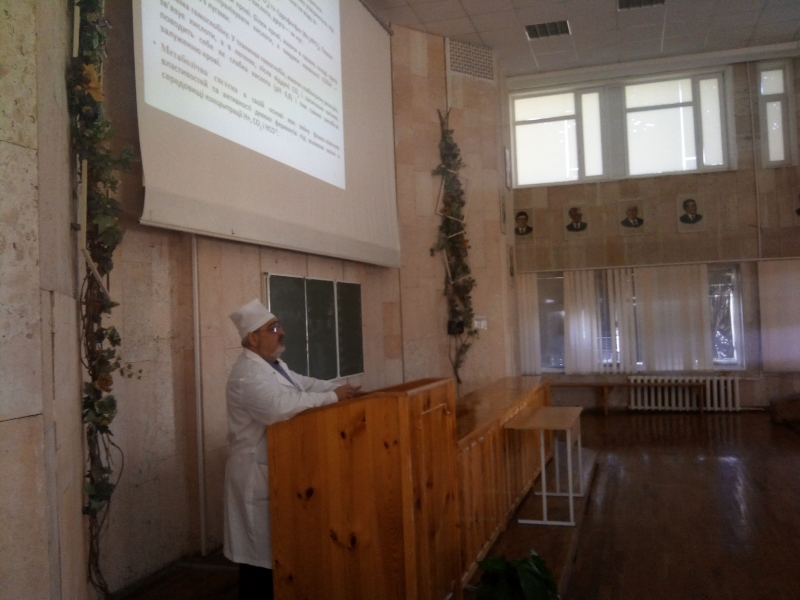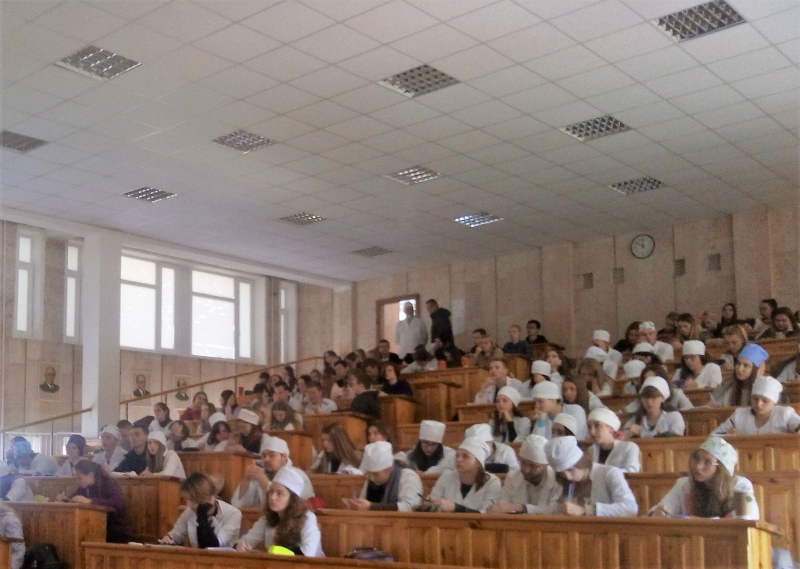Відбулася відкрита лекція з дисципліни «Фізіологія тварин» професора кафедри біохімії і фізіології тварин ім. академіка М.Ф. Гулого, доктора ветеринарних наук, професора Карповського Валентина Івановича
05 жовтня 2018 року відбулася відкрита лекція з дисципліни «Фізіологія тварин» професора кафедри біохімії і фізіології тварин ім. академіка М.Ф.Гулого, доктора ветеринарних наук, професора Карповського Валентина Івановича. Студенти 2 курсу факультету ветеринарної медицини прослухали лекцію на тему: «Фізіологія крові».


Окрім студентів цікаву лекцію із задоволенням відвідали: завідувач кафедри біохімії і фізіології тварин ім. академіка М.Ф.Гулого, доктор ветеринарних наук, професор Томчук В.А.; доктор сільськогосподарських наук, професор Трокоз В.О.; доктор ветеринарних наук, професор Грищенко В.А.; доктор біологічних наук, професор Калачнюк Л.Г.; доцент кафедри терапії і клінічної діагностики Бойко Н.І.; доценти кафедри біохімії і фізіології тварин ім. академіка М.Ф.Гулого Криворучко Д.І., Журенко О.В., Кладницька Л.В., Цвіліховський В.І., Арнаута О.В.; докторант Данчук О.В. та аспіранти кафедри.
Під час лекції студенти дізнались про роль крові у метаболічних процесах в організмі тварин; детально розібрали функції крові; функції окремих клітин крові; процес згортання та його регуляцію; групи крові та їх сумісність у тварин. Валентин Іванович, окрім сучасних наукових даних з фізіології крові, зацікавив студентів презентацією з ілюстраціями та короткими відеороликами для кращого сприйняття матеріалу, активно залучав студентів до діалогу під час викладання матеріалу.
Професор Карповський Валентин Іванович блискуче володів матеріалом, лекція була доступною і зрозумілою для студентів. За результатами анкетування було відзначено, що лекцію прочитано на високому методичному рівні.
Доцент кафедри біохімії і фізіології
тварин ім. академіка М.Ф.Гулого
Криворучко Д.І.
